
Capcom Co., Ltd. is a Japanese video game company. It has created a number of critically acclaimed and multi-million-selling game franchises, with its most commercially successful being Resident Evil, Monster Hunter, Street Fighter, Mega Man, Devil May Cry, Sengoku Basara, Dead Rising, Dragon's Dogma, Ace Attorney, and Marvel vs. Capcom. Established in 1979, it has become an international enterprise with subsidiaries in East Asia, Europe, and North America.

Square Enix Holdings Co., Ltd. is a Japanese multinational holding company, video game publisher and entertainment conglomerate. It releases role-playing game franchises, such as Final Fantasy, Dragon Quest and Kingdom Hearts, among numerous others. Outside of video game publishing and development, it is also in the business of merchandise, arcade facilities, and manga publication under its Gangan Comics brand.

Yoko Shimomura is a Japanese composer and pianist primarily known for her work in video games such as the Kingdom Hearts series. She graduated from the Osaka College of Music in 1988 and began working in the video game industry by joining Capcom the same year. She wrote music for several games there, including Final Fight, Street Fighter II, and The King of Dragons.
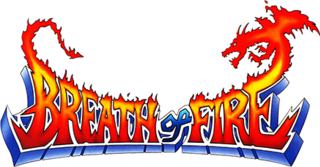
Breath of Fire is a role-playing video game series developed by Capcom. It originated on the Super Nintendo Entertainment System in 1993. The series has recurring characters and ambiguous continuity; though each game is its own self-contained story, the names of the two lead characters are usually Ryu and Nina.
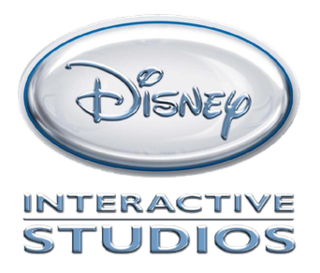
Disney Interactive Studios, Inc. was an American video game developer and publisher owned by The Walt Disney Company through Disney Interactive. Prior to its closure in 2016, it developed and distributed multi-platform video games and interactive entertainment worldwide.
Yoshiki Okamoto, sometimes credited as Kihaji Okamoto, is a Japanese video game designer. He is credited with producing popular titles for Konami, including Gyruss and Time Pilot, and for Capcom, including 1942, Gun.Smoke, Final Fight and Street Fighter II. He later founded the companies Flagship and Game Republic, and then created the hit mobile games Dragon Hunter and Monster Strike for Mixi. He also played a role in the creation of Rockstar's Red Dead franchise. Several franchises he helped create are among the highest-grossing video game franchises of all time, including Street Fighter,Monster Strike and Red Dead.
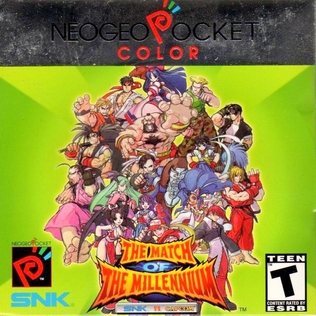
SNK vs. Capcom: The Match of the Millennium is a crossover fighting game developed and published by SNK for the Neo Geo Pocket Color in 1999.

Ōkami is a 2006 action-adventure game developed by Clover Studio and published by Capcom. It was released for PlayStation 2 in 2006 in Japan and North America, and in 2007 in Europe and Australia. After the closure of Clover Studio a few months after the release, a port for Wii was developed by Ready at Dawn, Tose, and Capcom, and released in 2008.

The Capcom Five are five video games that were unveiled by Capcom in late 2002 and published from March 2003. At a time when Nintendo's GameCube console had failed to capture market share, Capcom announced five new GameCube titles with the apparent goal of boosting hardware sales and demonstrating third-party developer support. Capcom USA followed up with confirmation that they would be exclusive to the GameCube. The five games were P.N.03, a futuristic third-person shooter; Viewtiful Joe, a side-scrolling action-platformer; Dead Phoenix, a shoot 'em up; Resident Evil 4, a survival horror third-person shooter; and Killer7, an action-adventure game with first-person shooter elements. Though not directly related to each other, they were all overseen by Resident Evil director Shinji Mikami and, except Killer7, developed by Capcom's Production Studio 4. Capcom USA later clarified that only Resident Evil 4 was intended to be exclusive; the initial announcement was due to a miscommunication with their parent company.

Super Street Fighter II Turbo HD Remix is a 2008 2D fighting game initially released on the PlayStation Store and Xbox Live Arcade services. A physical copy of the game was later released as part of Capcom Digital Collection. It is a remake of 1994's Super Street Fighter II Turbo featuring the original game and a high definition version using graphics drawn by UDON Entertainment, and arranged music by OverClocked ReMix members. The game was designed by Backbone Entertainment's David Sirlin to be the sixth definitive version of Street Fighter II, although it is in fact the seventh, being released after 2003's Hyper Street Fighter II.

Street Fighter is a Japanese media franchise centered on a series of fighting games developed and published by Capcom. The first game in the series was released in 1987, followed by six other main series games, various spin-offs and crossovers, and numerous appearances in other media. Its best-selling 1991 release Street Fighter II established many of the conventions of the one-on-one fighting genre.
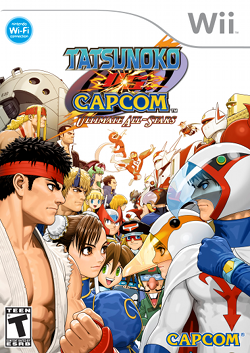
Tatsunoko vs. Capcom: Ultimate All-Stars is a crossover fighting game developed by Eighting and published by Capcom. The game features characters from both Capcom's video game franchises and various anime series produced by Tatsunoko Production. It was originally released in Japan for arcades and the Wii video game console in December 2008 as Tatsunoko vs. Capcom: Cross Generation of Heroes. Following high demand from international fans, Capcom worked with Tatsunoko to resolve international licensing issues and a second version, Ultimate All-Stars, was released for the Wii in North America, Japan, and Europe in January 2010, featuring additional characters and online multiplayer.

Capcom Game Studio Vancouver, Inc., more commonly known as Capcom Vancouver, was a Canadian video game developer owned by Capcom with minority stake partnership by Microsoft Studios. As Blue Castle Games, the company was the creator of several successful baseball sports video games, including The Bigs, MLB Front Office Manager and The Bigs 2. They have also developed the Dead Rising series. Blue Castle Games was acquired by Capcom after the release of Dead Rising 2, and renamed Capcom Vancouver, where they continued to work on the Dead Rising series. Capcom announced the closure of the studio in September 2018, cancelling Dead Rising 5 and moving other development to their Japan-based studios.
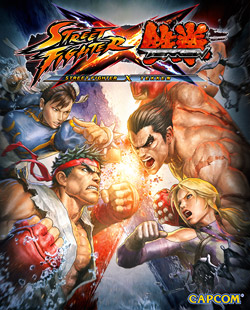
Street Fighter X Tekken is a 2012 crossover fighting video game developed and published by Capcom for the PlayStation 3, Xbox 360, Windows and PlayStation Vita. The game features characters from both the Street Fighter franchise and Namco's Tekken series. In the game, each player selects two characters respectively and face other as duos in tag team fighting matches, with the objective to knock out one of the members from the opposing team. In addition to the game's multiplayer modes, the game also features a single-player Story mode with a plot revolving around a mysterious object called the "Pandora".
Silicon Studio Corporation is a Japanese computer graphics technology company and HR services provider based in Tokyo. As a technology development company, Silicon Studio has produced several products in the 3D computer graphics field, including middleware software, such as a post-processing visual effects library YEBIS, real-time global illumination technology, such as Enlighten, and Mizuchi, a physically based rendering engine. As a video game developer, Silicon Studio has worked on many different titles for several gaming platforms, most notably, the action-adventure game 3D Dot Game Heroes on the PlayStation 3, the role-playing video games Bravely Default and Bravely Second: End Layer on the Nintendo 3DS, and Fantasica on the iOS and Android mobile platforms.
Luminous Engine, originally called Luminous Studio, is a multi-platform game engine developed and used internally by Square Enix and later on by Luminous Productions. The engine was developed for and targeted at eighth-generation hardware and DirectX 11-compatible platforms, such as Xbox One, the PlayStation 4, and versions of Microsoft Windows. It was conceived during the development of Final Fantasy XIII-2 to be compatible with next generation consoles that their existing platform, Crystal Tools, could not handle.
The development of Final Fantasy XV, a Japanese action role-playing video game, began in 2006 shortly before its announcement at that year's Electronic Entertainment Expo. Square Enix handled primary development on XV, and the game was released worldwide in November 2016; the total development time covered approximately ten years. The game was originally announced as Final Fantasy Versus XIII, a PlayStation 3-exclusive spin-off title. It was part of Fabula Nova Crystallis Final Fantasy, a subseries of games linked by a common mythos: while retaining thematic links, specific references were removed to aid with marketing. Additional media was created to portray the world of XV without using sequels; dubbed the "Final Fantasy XV Universe", it included a feature film, an original net animation, a virtual reality simulation game, multiple mobile projects including an abridged version of the game, ports to Windows and Stadia, and a novel The Dawn of the Future depicting an alternate finale.
Luminous Productions Co., Ltd. was a Japanese video game development studio and a subsidiary of Square Enix. Originally known as Business Division 2, Luminous Productions was the development team responsible for Final Fantasy XV and was one of 12 Business Divisions that Square Enix had at the time before the company consolidated its development divisions in 2020. The current name and development structure of the studio was formed on 27 March 2018 as an external company.

Downloadable content for Final Fantasy XV, an action role-playing game developed and published by Square Enix, was revealed prior to the game's release for the eighth generation of video game consoles in November 2016. It was mostly developed by a smaller team from the core Final Fantasy XV staff, supervised by director Hajime Tabata and headed by producer Haruyoshi Sawatari. Both free and paid downloadable content (DLC) were announced: among the DLC released were various promotional content utilised as tie-ins to the base game, such as A King's Tale: Final Fantasy XV as well as additional story elements intended to address player criticisms of the game's narrative structure and missing details.
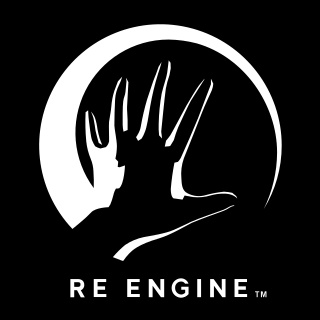
RE Engine, also known as Reach for the Moon Engine, is a video game engine created by Capcom. Originally designed for Resident Evil 7: Biohazard, it has since been used in a variety of the company's games, such as Devil May Cry 5, Monster Hunter Rise and Street Fighter 6. The engine is a successor to MT Framework, Capcom's previous engine.















